Community health remains the foundation of health delivery in Kenya and is critical to attaining Universal Health Coverage. The community-wide scale-up of community health is one of the flagship projects of Vision 2030 and ensures that communities in marginalized and hard-to-reach areas can access the quality healthcare services they need. It is also a proactive approach to teaching preventative and health-promotive education to communities and individuals.
The CHU4UHC platform brings together community health actors in Kenya to scale up CHS in the country collaboratively. Each partner in the platform brings their unique strength each pursuing the shared agenda of achieving large social change in the community health space in Kenya. In the past year, the platform through a collaborative approach was able to achieve the following objectives:
- Increasing sustainable financing for Community Health
There is global evidence that investing in community health can generate up to 10x the return on investment. https://chu4uhc.org/download/investment-case-for-community-health-in-kenya/ . One priority of the platform is to increase sustainable financing for community health in Kenya. Investing in community health yields beyond the direct health-related benefits to the wider society e.g. women and youth empowerment, giving the community a voice and increasing capacity and knowledge at the community level. The platform in the past year:
- Supported 2 regional block meetings for CCHFPs empowerment on CHS financing– CCHFPs are the advocates and champions for community health in their counties and are better placed to drive discussions and agenda for community health services. In the regional block meetings, there were discussions on the community health financing champions package, making investment cases for CHS and PHC and adoption of costing tools.
- Influenced government CHS financing policy– political goodwill and prioritization are vital for investing in community health. Different partners offered technical assistance in drafting CHS priorities for the manifestos and subsequent commitments through engagement with other stakeholders.
- Institutionalized payment of CHWs– the platform engaged the Kenya Kwanza Manifesto committee for commitment to stipend payment to CHWs. National and county governments committed to matching each other’s efforts to pay CHWs on a 50-50 basis.
- FAH which is the financing partner in the platform was awarded the Skoll award for their transformational work in securing more than $200 million in financing for at-scale community health systems across Sub-Saharan Africa. FAH has also engaged governments across 12 countries and contributed to the official recognition of more than 415,000 Community Health Workers in policy and practice.
- The Africa Frontline First Catalytic Fund (AFF-CF) to improve Community Health across Sub-Saharan Africa– The (AFF-CF) seeks to mobilize $100 million to provide financing to accelerate and sustain the scale-up of 200,000 frontline community health workers, the backbone of community health services in 10 African countries.
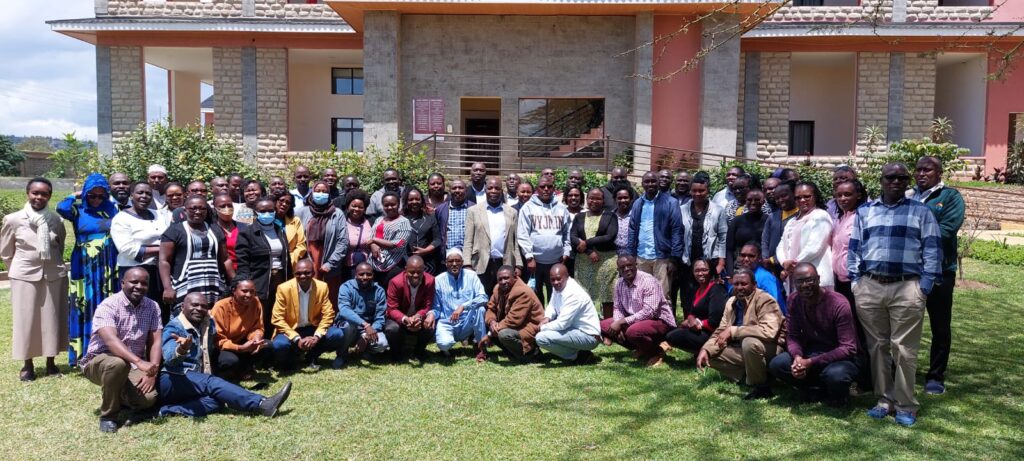
2. Strengthening community health leadership and governance structures at all levels of government.
Leadership and governance in building a community health system involve ensuring that strategic policy frameworks exist and are combined with community health laws at both national and county levels that bolster the community health system.
- Effective oversight– the Kenya Community Health Strategy 2020-2025 dictates that oversight is a key prerequisite for functional community health units. Community Health Committees (CHCs) are mandated to coordinate, manage and offer governance for community health services in community health units. The platform partners supported the training of CHCs in the different counties to strengthen this.
- Amref trained 3513 CHCs in 11 counties.
- ENAI trained 157 CHCs across Kajiado County.
- Lwala reactivated 245 CHCs and trained 105 CHCs on the new curriculum.
- Strengthening legal frameworks and legislation to support the delivery of community health services– The platform through different partners led advocacy efforts to counties to pass the CHS Bill, 2020 which pushes for the recognition and remuneration of CHWs. The platform:
- Advocated for the enactment of the National CHS Bill by the Senate. This is still ongoing.
- Lwala supported the enactment of the CHS Bill in Migori County.
- Amref supported the enactment of the CHS Bill in Tana River and Trans Nzoia counties.
- Accountability– Accountability is an intrinsic aspect of governance that concerns the management of relationships between various stakeholders in health, and other entities responsible to finance, monitor, deliver and use health services. Functional CHCs provide accountability for community health services offered by facilities through the community scorecard. https://chu4uhc.org/social-accountability-of-primary-health-in-kenya/
3. Increasing availability, quality, demand and utilization of data
Sound and reliable information is the foundation of decision-making across all health system building blocks. It is essential for health system policy development and implementation, governance and regulation, health research, human resources development, health education and training, service delivery and financing. With 83.37% of the world’s population owning a smartphone, it is only fitting that we integrate health systems toward the digital direction that the world is headed. In this sector:
- Living Goods fully supported the digitization of community health in Kisumu County. They provided the phones and offered technical assistance to the county. https://livinggoods.org/media/strong-progress-digitizing-community-health-in-kisumu/
- Amref through the CHU4UHC and GF TB supported the scale-up of eCHIS in 10 counties.
- Lwala Community Alliance supported the rollout of eCHIS in 2 sub-counties in Migori and digitized approximately 1500 CHWs.
- ENAI Africa supported the rollout in a phased approach and digitized 120 CHAs across Kajiado County.
- Medic supported the development of the 2.0 eCHIS app which will be launched in May 2023.
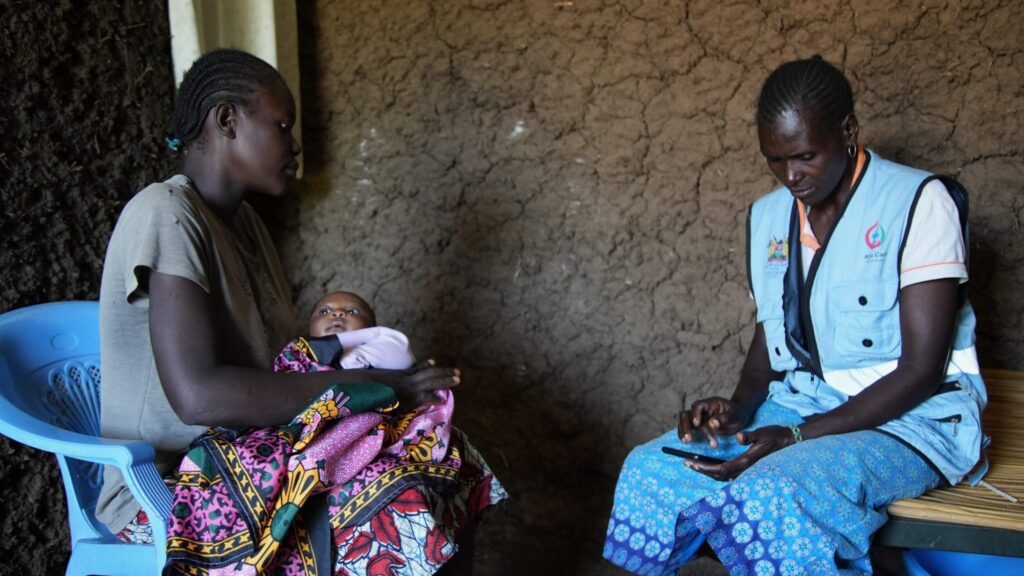
4. Strengthen the delivery of integrated comprehensive and high-quality community health services
Functional CHUs are paramount for sustainable Community Health Services. The platform supported the establishment, strengthening and sustainability of community health units in the different counties where they work in. This included developing the capacity and leadership of community health personnel through CHC training and offering supervision for CHUs. Scale community services through well-trained, equipped, paid, supervised, and protected CHWs. These efforts strengthened leadership, management and coordination of community health services.
- The 149 CHAs offered scholarships to KMTC graduated in December thus adding to community health HRH.
- 1000 CHV kits worth 10 million launched in Kajiado County by ENAI Africa
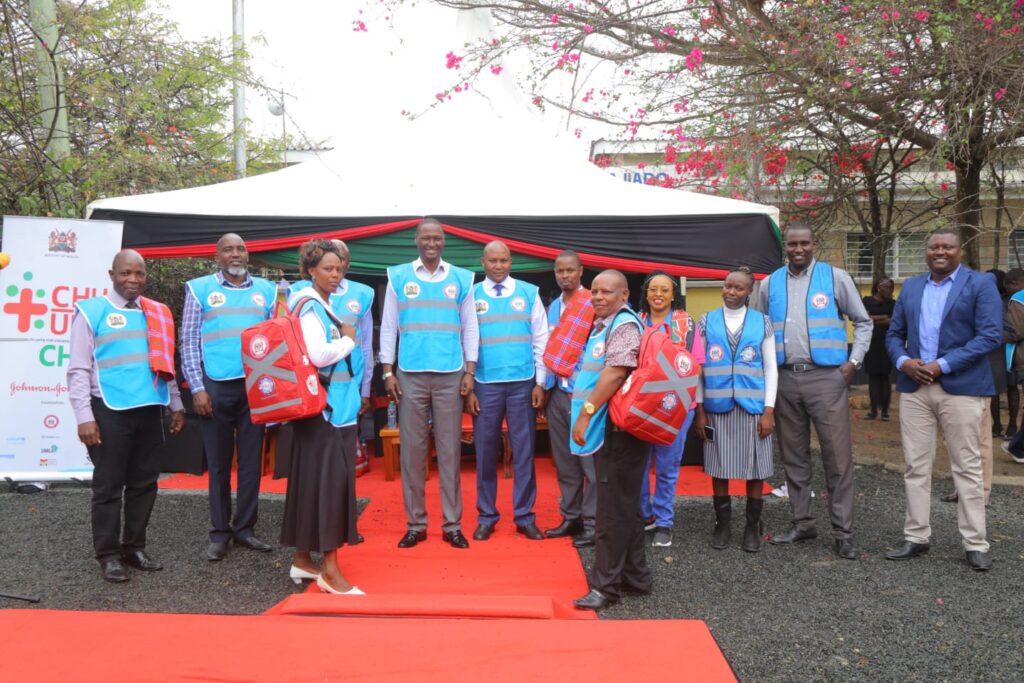
5. Offering support to DCH.
The platform exists to support the Ministry of Health through the Division of Community Health. All partners supported the DCH in various capacities:
- Offering TWG support for different meetings and eCHIS hackathons.
- Supported the Department of Primary Health AWP 2022-2023
- Strategic partnerships- In the spirit of creating a platform for strategic partnership and accountability among stakeholders and sectors at all levels within community health, the platform increased members from 15 to 24 in 2022.
6. Build a motivated, skilled, equitably distributed community health workforce (CHAs & CHVs)
The Kenya Community Health Strategy (2020-2025) directs that the delivery of health care services at the community level in Kenya is largely determined by the availability of an efficient, well-trained, motivated community health workforce. The platform supported the following strategic interventions and activities designed to build, motivate, and
equitably distribute a skilled community health workforce.
- Amref:
- Developed a Community Health Workforce Registry– the 82,000 database for CHWs established will guide optimal recruitment and deployment of the community health workforce.
- Assessed and certified 65,000 CHVs for legitimacy and competence purposes.
- Developed accreditation guidelines for CHW training institutions.
- Lwala Community Alliance:
- Completed CHW register and certified 2410 CHWs.
- Trained 254 CHAs on the 360-degree supervision model.
- Trained 20 ToT CHAs on Community scorecard.
- Trained 37 county ToTs and 76 CHAs on eCHIS.
- ENAI Africa:
- •Trained 115 CHAs on community health service delivery.
- Equipped 120 CHAs in Kajiado digitally with training.
- 115 CHAs equipped with mobile devices for digital reporting.
Donor Visit
Our year culminated with a visit from our 2 donors: Johnson & Johnson and Elma Philanthropies. The donor visit was purposed to review the year 2022 and plan strategically for the year 2023. Our donors also joined us for a one-day field visit to Vanga ward in Lunga Lunga sub-county where there was a community dialogue in the community and a scoring session for the Community Scorecard which aims at giving the link facility feedback on the services provided.
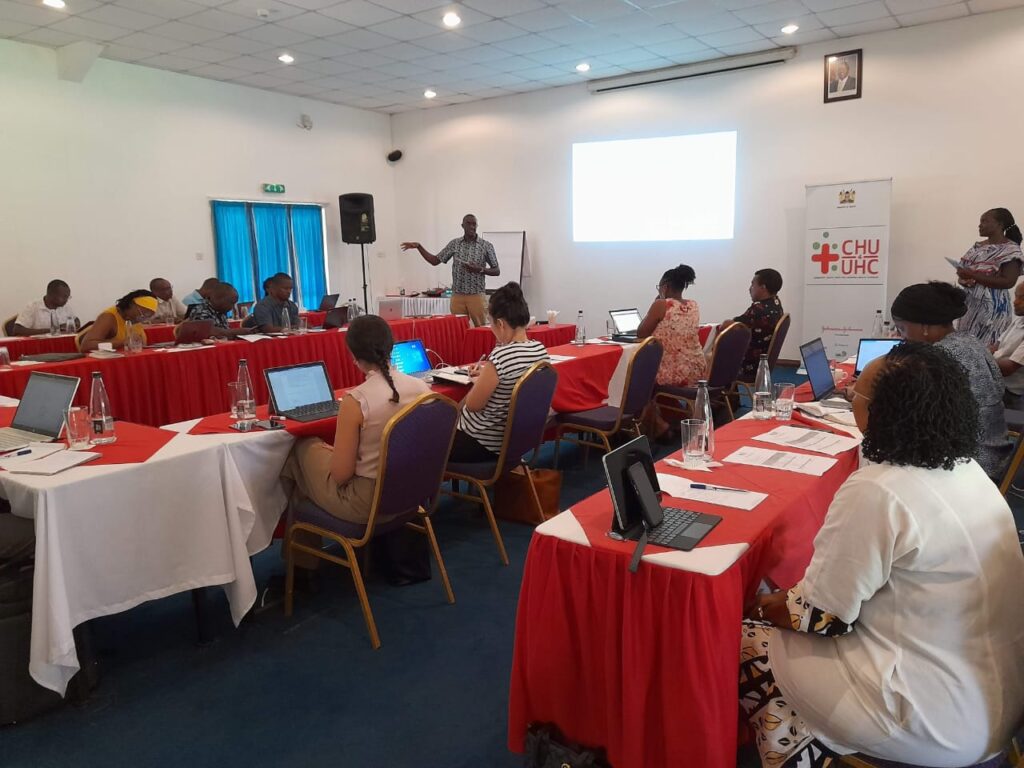
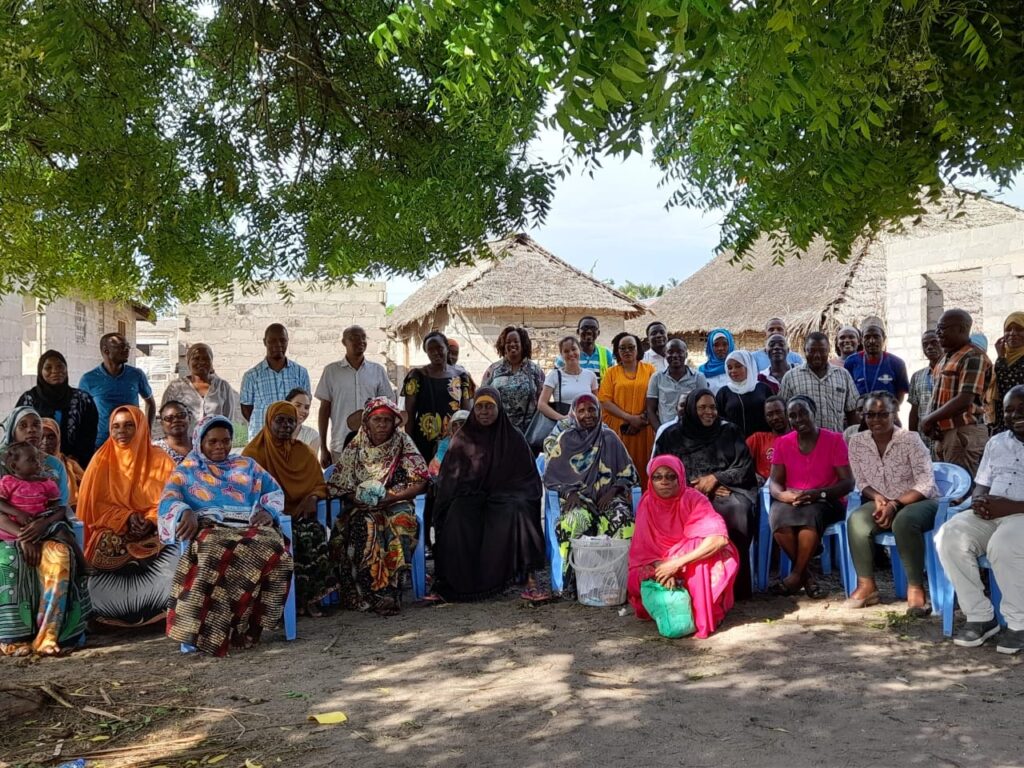
We are grateful for all the partners and stakeholders we worked with in 2022, and look forward to a greater 2023 as we work together to strengthen community health services in Kenya.
